In 2024 we saw new tools emerge and early adopters started to use those tools. In 2025, we are now seeing broad evaluation and likely adoption of tools in virtually every job function in a software company. We’re seeing tools that can improve text content in websites, write blog posts, and plan SEO configuration. We see tools that can write code. I just sent an email on a new tool that helps design user interfaces (and the Travel product team has just gone through a UI overhaul, for which we provided feedback, but a LOT of the rework was done with AI).
In other words, the Artificial Intelligence revolution isn’t just coming, it is already here. And it will change most of the jobs in our company including mine. So this begs the question, what do we do now?
Upon seeing this seismic shift, it would be EASY for any team member to view AI as a threat to their job. After all, how can anyone compete with a robot that can do 200 quintillion calculations a second? If I’m being honest, I too have experienced periods of anxiety when I look at how fast this sea change has come upon us.
However, this hasn’t been the first technology revolution I’ve experienced. I am old enough to remember the impact of personal computing, the Internet, social media, the iPhone, and probably even some that I have forgotten. Having seen all these changes, I’ve learned one important lesson– if you learn to work WITH the new technology you can be even more successful than before.
This is certainly the case with Artificial Intelligence. Proper use of AI enables us to be far more productive with the time that we have. As an example, in the last week, I’ve used AI for a variety of tasks, including:
- to review legal documents related to a company restructuring;
- to edit and improve text content that I write;
- to write 360 Review questions for Leadership team members;
- and to complete market research for a presentation.
Having used AI in so many different ways, I am now excited about the AI Revolution. And I encourage you to be EXCITED about it as well.
I’m writing this article to encourage all of you to talk to your team members and to anyone at your company who expresses any apprehension or concern about how AI will impact their jobs or if they’ll even if AI will replace their jobs.
In my estimation, AI will not replace ANY employees, albeit it may decrease the number of new personnel we need in various job functions. Why? Because AI does NOT replace human beings. AI requires well-written prompts to be of any use and those prompts and AI requires someone to synthesize, edit, format and improve the results. These are talks that ALL require thought processes of which human beings, and NOT AI, are capable.
If you look back to the examples in an earlier paragraph, using ChatGPT did NOT replace me, but it absolutely made some of the more mundane tasks FASTER than they otherwise would have been.
This increased productivity reminded me of an analogous situation in the physical-world. As some of you are aware, I’m an amateur woodworker in my free time (see the accompanying image as a recent example of my handiwork)

That bench required roughly 50 hours of work to build. In doing so, I used multiple power tools (saws, drills, etc.).
Alternatively, I could have used only hand tools to make this same bench. In fact, some woodworkers still ONLY use hand tools because they enjoy the “purity” of only working with their hands. I, however, enjoy taking on new projects more quickly so I prefer to use power tools so I can complete each project and move onto a new project.
So, power tools do NOTHING except make my job faster and in many cases, more precise/accurate and thorough. But make no mistake about this fact. Not a single power tool in my shop is capable of building that bench without me.
In case you’re missing my analogy: Power Tool = Artificial Intelligence.
Given that you are reading this article, I suspect this topic is something about which you have already thought. However, I hope to convince you that by shifting your focus from FEAR of AI to understanding that AI can make each of us SO MUCH BETTER at our jobs, as long as we embrace its potential and the change that it will bring.






